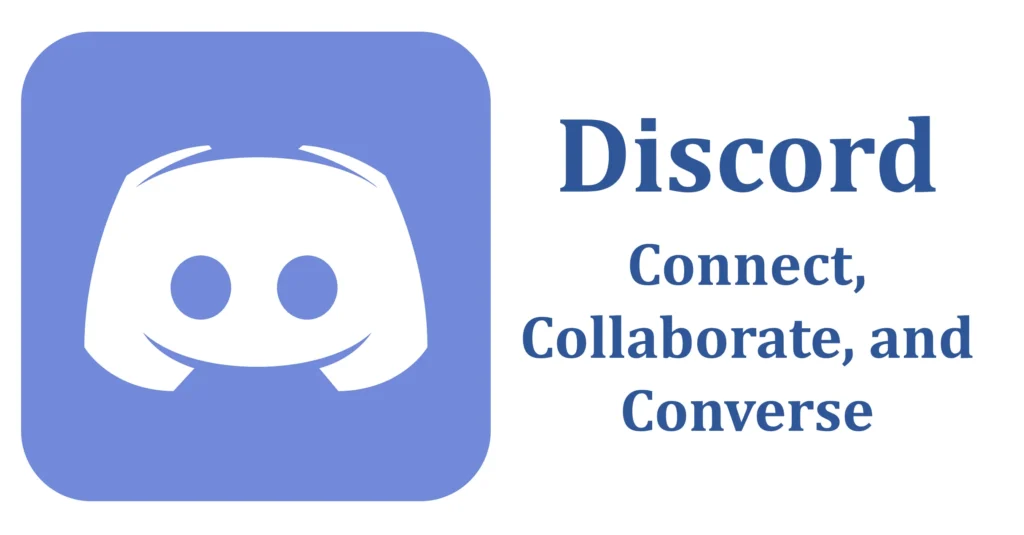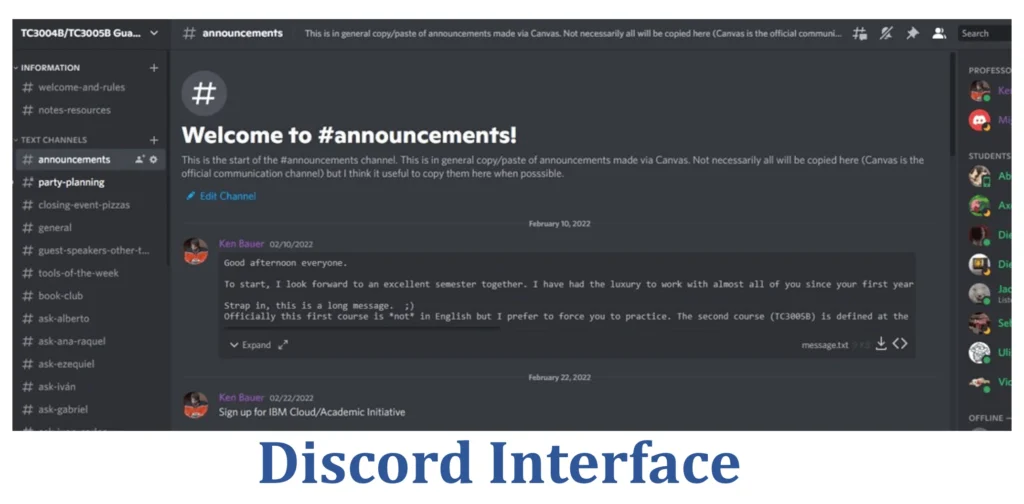
Discord has developed as a distinct and potent platform in the digital era. It is where connectedness knows no limits, altering how people communicate and create communities online. We’ll examine the background, functions, benefits, and drawbacks of Discord. In this blog article we will try to find out why it’s become a mainstay of online communication.
The Genesis of Discord
To understand Discord’s significance, we must begin with its origins. Jason Citron and Stanislav Vishnevskiy founded the platform in 2015. Interestingly, Citron’s initial venture, “Open Feint,” was dedicated to mobile gaming, and his passion for gaming would ultimately lead to the birth of Discord. It aimed to solve a problem that gamers faced: the lack of a seamless, reliable, and feature-rich platform for voice and text communication during gameplay.
Over time, it evolved from a mere voice and text chat service for gamers into something much more expansive. It became a versatile, user-friendly tool for anyone looking to connect, whether they were avid gamers, professionals, hobbyists, or educators. It was no longer just a solution; it had transformed into a thriving ecosystem of its own.
Usage: Beyond Gaming
Discord’s growth can be attributed to its adaptability. While it still maintains its gaming roots, Discord now encompasses a multitude of communities and interests. Here are some primary use cases:

- Gaming: It remains a go-to platform for gamers. It provides voice chat rooms for coordinating in-game strategies. Additionally, it provides text channels for sharing tips and tricks and even the ability to stream gameplay for others to watch.
- Education: It has gained popularity in the education sector, where it serves as a virtual classroom. Teachers and students can create private servers for lectures, discussions, and collaborative projects.
- Professional Collaboration: Many professionals and remote workers use Discord for team collaboration, holding virtual meetings, and sharing project updates. Its voice and video features provide a more personal touch than traditional email or messaging.
- Hobbies and Interests: It hosts a diverse range of servers dedicated to hobbies and interests such as art, music, cooking, technology, and more. These communities offer a space for enthusiasts to connect and share their passions.
- Content Creation: Content creators, including YouTubers and Twitch streamers, use Discord to engage with their audience. They can create exclusive communities, offer perks to subscribers, and conduct Q&A sessions.
- Support Communities: Many organizations and software developers utilize it to provide customer support. It offers a more interactive and real-time support experience compared to email or phone support.
Advantages of Discord
Discord’s widespread adoption can be attributed to its numerous advantages:
- User-Friendly Interface: Both experienced users and newcomers find Discord’s UI to be simple and straightforward.
- Customization: Server owners may add banners, icons, and custom emojis to their servers to give them a distinctive and individual touch.
- Cross-Platform Compatibility: It runs on many different platforms, allowing users to join and converse independently of their hardware or operating system.
- High-quality audio and video conferences are available on it, making it a great option for both social gatherings and business meetings.
- Community Building Tools: The platform offers features like roles, permissions, and moderation tools that empower server administrators to maintain a safe and engaging environment.
- Bot Integration: Discord’s integration of bots allows for automated functions within servers, from moderating content to playing music.
- File Sharing: Users can easily share files and media within Discord, simplifying the exchange of information and resources.
- Privacy and Security: It prioritizes user privacy and data security, with robust measures in place to protect user information.
Disadvantages of Discord
While Discord is a versatile and powerful platform, it’s not without its drawbacks:
- Server Overload: In large servers or communities, the volume of messages and voice conversations can become overwhelming. Moreover, it can make it challenging to keep up with discussions.
- Content Moderation: While it provides moderation tools, it can still be challenging to manage and prevent inappropriate content and behavior, especially in open communities.
- Learning Curve: For new users, Discord’s features and settings can be overwhelming, leading to a learning curve that might deter some from using the platform to its full potential.
- Resource Intensive: Running it on older or low-end devices can be resource-intensive, potentially causing performance issues.
- Privacy Concerns: Like many online platforms, it has faced privacy concerns and issues related to data handling, although the company has taken steps to address them.
- Competition: With the rise of alternatives like Slack and Microsoft Teams, Discord faces stiff competition in the professional collaboration space.
Discord’s Future
Discord’s journey from a niche gaming platform to a ubiquitous communication tool is a testament to its adaptability and commitment to fostering online communities. Undoubtedly, its advantages in user-friendliness, customization, and adaptability have made it a beloved platform for millions. Its importance in bringing people together throughout the world is evident, notwithstanding certain difficulties.
One can only speculate about the future as Discord develops more. Maybe it may broaden its selection even more and play a bigger role in our digital life. Or it might inspire the next generation of communication platforms, setting the standard for how we connect and collaborate online.
No matter whether you’re a gamer coordinating a raid, a teacher engaging with students or a group of friends planning a virtual movie night, Discord has proven that it’s here to stay, connecting communities, one server at a time.
